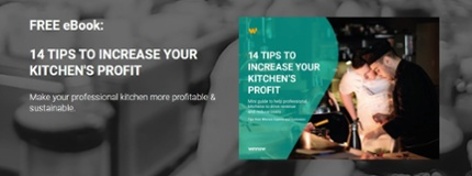Under the shadow of the UN General Assembly in New York, senior leaders met earlier this week at the Rockefeller Foundation gathered to review progress against the target to halve food waste by 2030. Commendable progress had been made - early movers such as IKEA, Tesco and Kellogg’s are taking leadership positions. But more must be done to accelerate progress if we are to have a realistic chance of meeting this ambitious goal.
In September 2015, the United Nations General Assembly adopted a set of 17 Sustainable Development Goals (SDGs). SDG 12 seeks to “ensure sustainable consumption and production patterns.” The third target under this goal (Target 12.3) calls for halving per capita global food waste at the retail and consumer levels and reducing food losses along production and supply chains by 2030.
Champions 12.3 was born out of this ambition and comprises of senior executives from business, farmer groups, civil society, policy and research and advocacy groups. Champions 12.3 agree to lead by example in their own industries, showcase innovation and successful initiative and leverage relationships with institutions, banks, governments and donors to create conditions to meet the target.
Target, Measure and Act are the three pillars of activity and policy that Champions 12.3 work for. Under ‘Target’, setting ambition is seen as important as it sets ambition and motivates action. It is therefore seen as an important first step for governments and companies to make.
As the old adage goes, what gets measured gets managed. Quantifying food loss and waste within borders, operations, or supply chains can help decision-makers better understand how much, where, and why food is being lost or wasted. Ultimately it is an action that matters though. Reducing food loss and waste is everyone’s responsibility. Exactly what needs to be done varies around the world, and achieving SDG Target 12.3 will require big acts by big players, as well as millions of acts by everyone from farmers to consumers.
In the annual progress report released by Champions 12.3 this month, the performance by governments and companies is reviewed against these three pillars. Within Target progress is being made on both fronts - the report finds that we are on track to hit 60% of the 50 largest food companies setting specific targets by 2018. For example, Compass Group, the world’s largest foodservice business has already committed to reducing food waste by 10% by 2020.
From the government’s side, the ambition is for countries covering 40% of the world’s population to also set aligned targets by 2018. The report finds that although some countries like Norway (who has already set a 50% reduction target by 2030) and Wales (who are aiming for 2025) have already made commitments, a faster cadence is required to meet this milestone.
Within measure, the report finds that while some progress is being made in the commercial sector (for example in the UK both Tesco and more recently Sainsbury’s have begun publishing waste data publically), progress has been much slower at the government end. Whilst individual governments such as the UK, US and Japan have begun measurement programs, and regional blocks like the African Union are developing mechanisms for its member states to measure priority commodities, consistent measurement has not yet begun.
Finally, within Act progress was seen to be on track for companies with initiatives like IKEA’s #foodisprecious program already delivering results. Working with Winnow, the Swedish furniture retailer who serves over 650 million guests at their restaurants every year, is preventing over 350,000 meals a year being wasted already.
At the summit, Tesco CEO Dave Lewis announced that Tesco would begin working with 24 of its core suppliers to reduce food waste in their production processes. In addition, the suppliers will adopt a consistent methodology to measure waste. Together the suppliers represent £17bn worth of business. Lewis went on to say that he believed this would be just the beginning and measurement across the supply chain would become the norm as other retailers adopt similar programs.
The closing thought for the session belonged to WWF International President Yolanda Kakabadse who encouraged leaders from business and government to accelerate the pace of progress. She described the incredible impact that food waste has from an environmental perspective, from climate to water, land use and biodiversity. There is a moral imperative to solve this problem, and she challenged the room to aim higher and exceed the 2030 target rather than simply meeting it.
For the team at Winnow, we are proud to be part of this important community. We work with thousands of incredible chefs all over the world who embody the target - measure - act method using our technology as a tool to reduce waste while improving the profitability of their kitchens. Some of our clients like IKEA, Compass Group and AccorHotels have already taken leadership positions by making public commitments to reduce food waste.
We would challenge the rest of the hospitality sector to take the necessary steps to do the same. Making food waste reduction a strategic priority makes business sense, but the impact of the sector as a whole taking action could be far-reaching for people and planet.
The time to act is now.
Photo credit: Joao Marcelo Marques via Unsplash









Comment on my blog